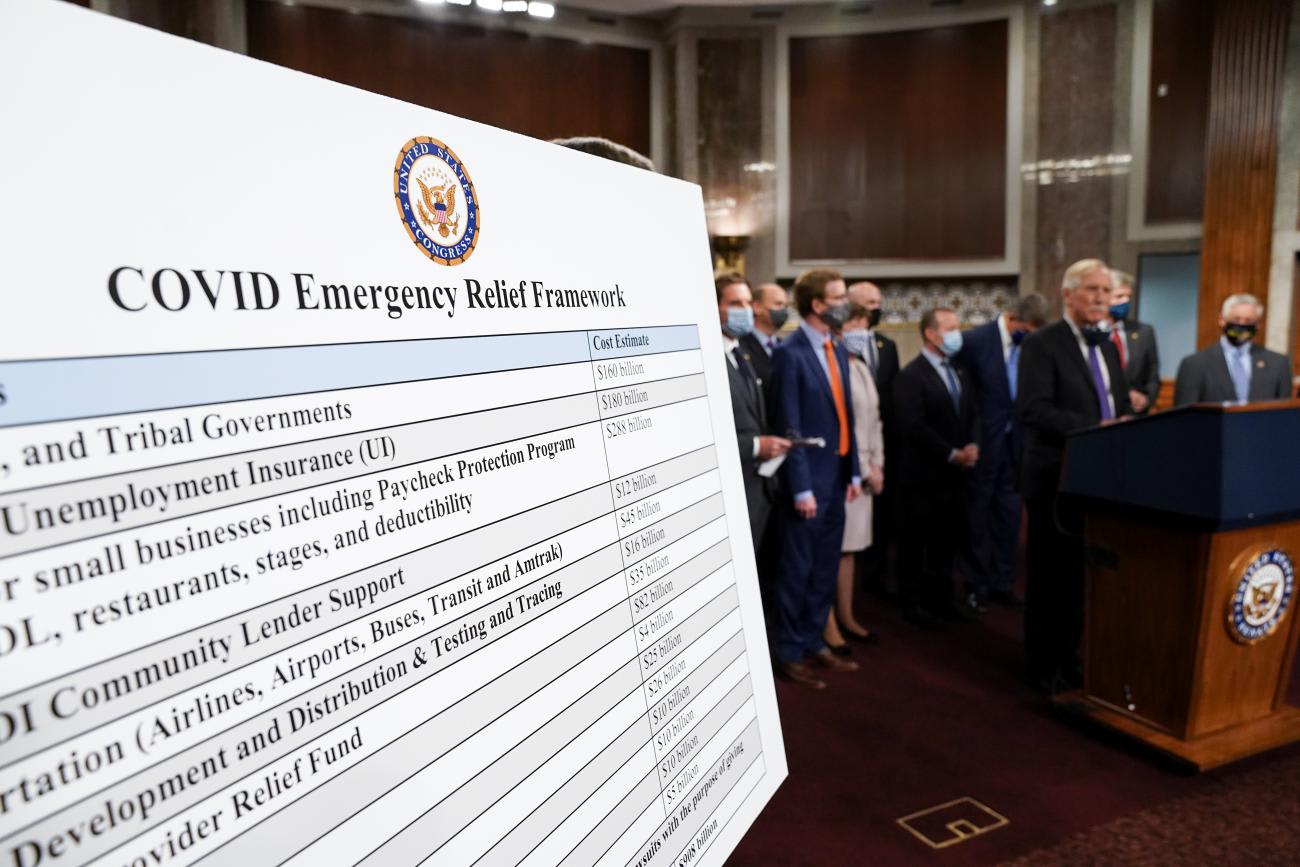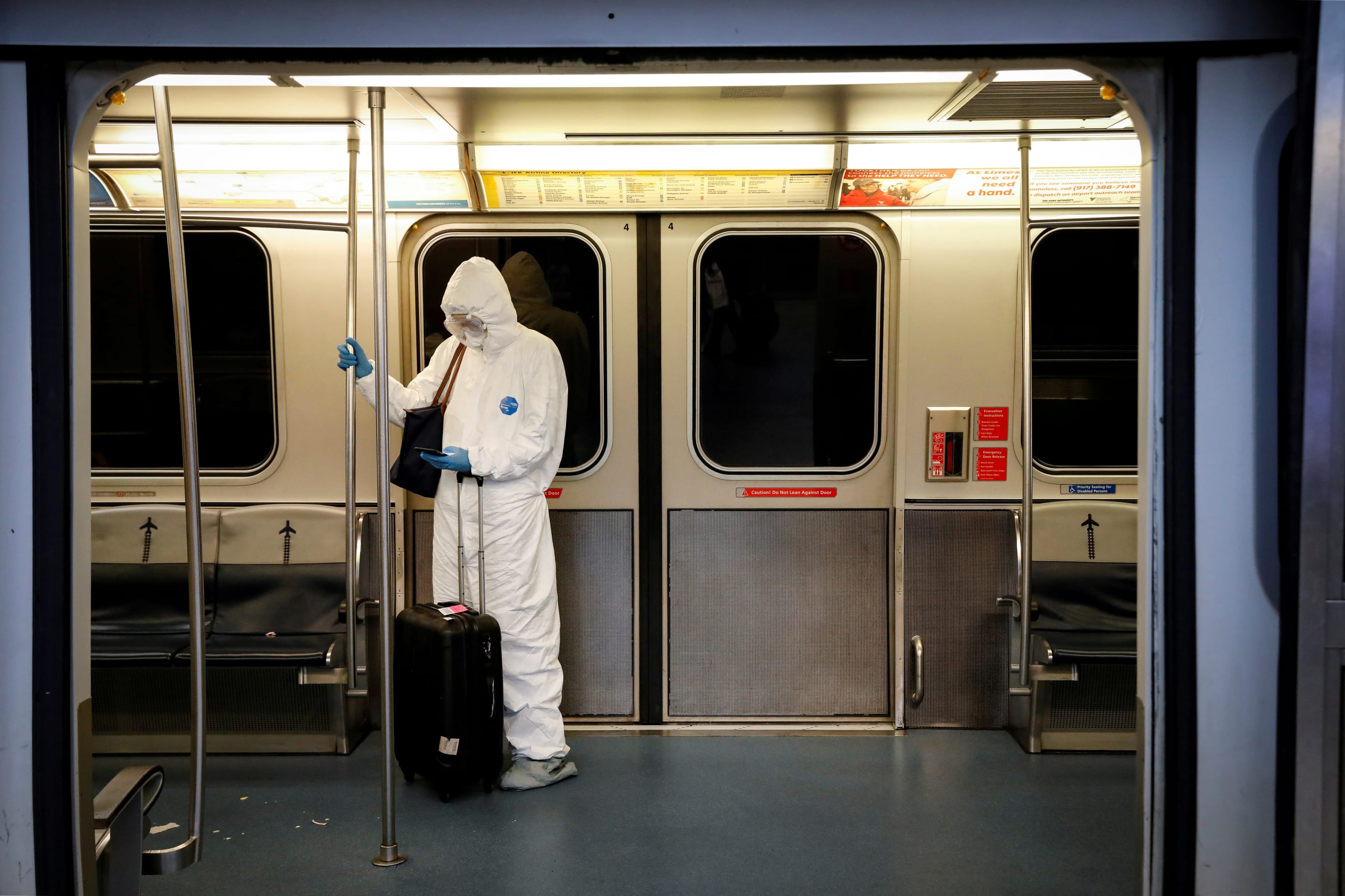As part of a project on the United States' engagement with global health, the Council on Foreign Relations has published a report on U.S. foreign policy and global health written by me. The report posits that policy failures concerning COVID-19 and climate change create an imperative to transform U.S. global health policy. Global health leadership by the United States did not prepare the country for a pandemic or climate change — the most dangerous health threats it faces — or help counter the global decline in democracy or authoritarian states' efforts to change the balance of power.
The United States needs a new foreign policy on global health that treats pandemics and climate change as apex threats to its national interests, particularly the vital interests of national security and economic power. The policy should protect these interests by prioritizing pandemic preparedness and climate change adaptation. That approach requires realigning public and global health policies to protect U.S. vital security interests, rebuilding public and global health capabilities, and reconstructing solidarity at home and abroad against shared dangers.
The United States needs a new foreign policy on global health that treats pandemics and climate change as apex threats to its national interest
The Sea Change After the Cold War
Understanding why decades of U.S. global health involvement failed to protect national interests against pandemics and climate-related health threats requires examining how U.S. foreign policy on global health has evolved. Before and during the Cold War, global health was not a foreign-policy priority. It fell within the "low politics" of international relations populated by development and humanitarian issues. After the Cold War, policymakers began to see global health as important to the national interests dominating the "high politics" of world affairs — national security and economic power.
That perspective made global health relevant to the full range of national interests served by foreign policy. Policymakers also connected global health engagement with the promotion of democracy and the preservation of an international system favorable to American interests and values. The approach generated bipartisan support for domestic reforms and foreign policy initiatives, including the President's Emergency Plan for AIDS Relief (PEPFAR). Increased global health involvement had no geopolitical motivations because the United States faced no rivals in the initial post-Cold War decades.
What Went Right and What Went Wrong Before COVID-19
U.S. support for PEPFAR, the Global Fund to Fight AIDS, Tuberculosis, and Malaria, and other efforts contributed to global health progress. American engagement helped change global health governance, such as the revision of the International Health Regulations, and catalyzed global health activities by fellow democracies, other countries, international institutions, and nongovernmental organizations.

However, despite frequent warnings and wake-up calls about pandemics, the United States struggled to address the threat. The crisis-and-complacency pattern concerning serious disease events persisted. The United States continued to be unprepared for a pandemic before COVID-19. Further, the inadequacy of national and international mitigation of greenhouse gas emissions heightened fears about the ominous health consequences of climate change and the lack of preparations for adapting to a transforming climate. Such fears did not temper the inconsistency of U.S. climate policy across presidential administrations.
In short, the bipartisanship associated with U.S. global health leadership did not prioritize pandemic preparedness and never materialized on climate change. The United States remained vulnerable to pandemics and climate change — the most direct and dangerous acute and chronic health threats to its national interests.
To make matters worse, the political conditions under which U.S. global health involvement had increased deteriorated during the 2010s. Domestic politics became more partisan, populist, and nationalistic. Donald Trump's election as president in 2016 — and his America First foreign policy — exacerbated these changes. President Trump attempted to cut global health assistance, did not prioritize pandemic preparedness, and opposed action on climate change.
Internationally, China and Russia shifted the balance of power against U.S. interests through military and economic power, not global health engagement. That shift happened as the global decline in democracy and rise of authoritarianism accelerated. These geopolitical changes made the international system less favorable to the United States, undermining the notion that global health leadership by the United States and other democracies helped preserve the liberal international order.
The bipartisanship associated with U.S. global health leadership did not prioritize pandemic preparedness and never materialized on climate change
COVID-19 and Climate Change
The report analyzes how the Trump and Joe Biden administrations responded to the COVID-19 and climate change crises. These responses underscored that U.S. global health policy had failed to prepare the nation for a pandemic and climate change. The approaches taken by the two administrations also highlighted how much a polarized country and divided international system have damaged the foreign policy context for global health.
The damage appeared most clearly in President Biden's attempts to reassert U.S. global leadership on global health and climate change. The COVID-19 pandemic and mounting evidence that global warming threatens the United States has made domestic politics on public health and climate change more divisive. Geopolitical competition has undermined collective action against COVID-19 and climate change. Those outcomes suggest that U.S. global health engagement provides no counterweight to domestic partisanship on public health and creates no advantages for defending the liberal international order against authoritarian powers.
Security, Capability, and Solidarity Reforms
Despite the difficult domestic and international politics, the United States needs a new foreign policy for global health given the failures that COVID-19 and climate change have exposed. The report makes sixteen recommendations to guide a transformed approach centered on pandemic preparedness and climate change adaptation. Several recommendations propose domestic reforms that are needed to help strengthen U.S. global health engagement.
The strategy should realign U.S. public and global health policies to serve the full range of national interests and make protecting vital security interests against pandemics and climate change the top priority, such as by strengthening the federal government's command-and-control system for national biosecurity. Achieving that objective means rebuilding national and international public health capabilities, such as by creating state-level health security fusions centers to strengthen federalism on biosecurity, climate adaptation, and other health threats. Such improvements require reconstructing solidarity at home and abroad to sustain collective action against pandemics and climate-related health threats, such as by designing the next generation of U.S. biotechnology innovations to partner with foreign entities to enhance global capacity to produce countermeasures against health threats.
Crises Fast and Hot
A devastating pandemic and the climate adaptation crisis produce a painful reckoning for the United States on public and global health. A new moment of transformation for U.S. foreign policy on global health has arrived. The U.S. government should, at long last, treat pandemics and climate change as threats to every national interest — but especially the vital interests previously neglected in global health policy. The dangers that pathogens and climate change create will not abate because domestic and international politics are hostile to transforming U.S. foreign policy on global health. Crises are coming fast and hot. There will be no time for complacency, no progress in partisan politics, and no benefits from geopolitical machinations.













